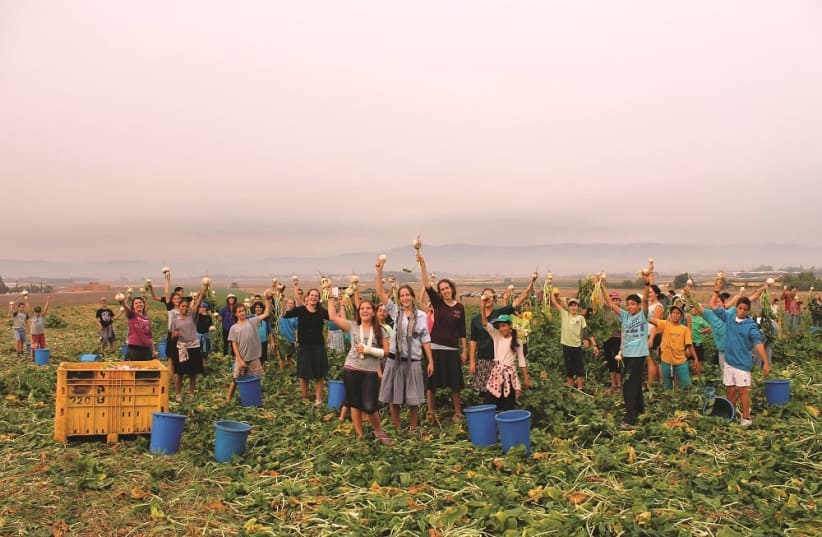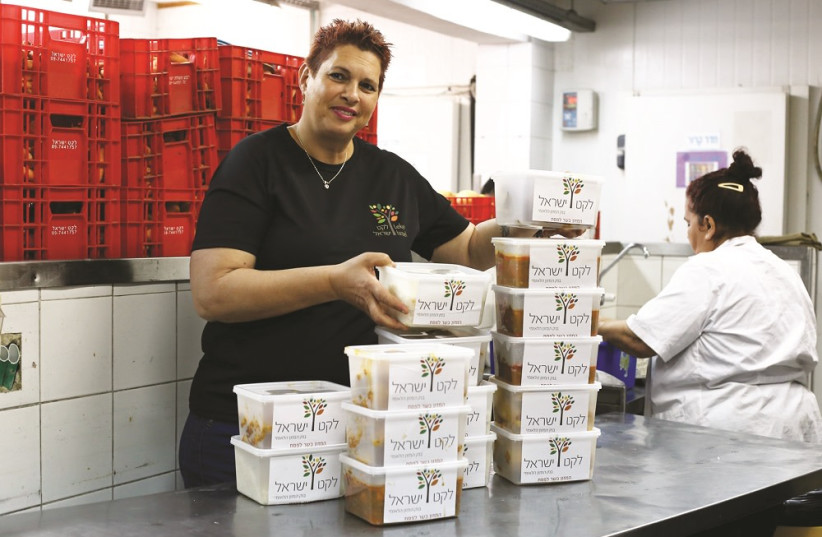"The past year,” says Joseph Gitler, founder and chairman of Leket Israel, the leading food rescue organization in Israel, “has been unexpected in its highs and lows.” Over the past year and a half, Leket, which supplies hundreds of charitable organizations with food to distribute to those in need, has experienced many challenges. The organization’s mission is to lead the safe, effective, and efficient collection and distribution of surplus nutritious food in Israel to those who need it. This vision has been challenged during the pandemic.
Leket Israel operates two main projects, explains Gitler. First, Leket works with the catering industry, hotels, cafeterias, and army bases, ensuring that excess food that remains from events can be utilized for those in need. Second, Leket works with the farming community, packing houses, kibbutzim, and moshavim, rescuing surplus fruits and vegetables and donating them to individuals and organizations.
“What’s happened over the past year,” he says, “is of those two projects, one has skyrocketed, and one has plummeted.” Leket receives the bulk of its food from the IDF, followed by hotels and corporate cafeterias. When the pandemic struck, the IDF changed the way in which they served their meals, and virtually all corporate cafeterias and hotels closed. As a result, the amount of excess food that Leket collected was dramatically reduced. Much of Israel’s tourism industry has vanished, says Gitler, and as a result, “many of the hotels that we work with were shut down. Others are operating at a low capacity. They are cooking less, so there is less excess,” explains Gitler. Leket Israel approached caterers, hotels, and restaurants and purchased meals from them, so that it could continue to provide food for its clients.
On the flip side, he adds, there has been an increase of more than 50% in the amount of produce rescued and delivered from farms. Initially, at the start of the pandemic, farmers were left with crops that they couldn’t sell in their normal course of business. This positive trend in the number of fruits and vegetables received from the farming industry has continued over the past year and a half. Gitler says that Leket exceeded its goal of obtaining 20 million pounds of fruits and vegetables by 10 million in 2020, receiving 30 million pounds. This year, the organization is on a pace to receive 55 million pounds of fruits and vegetables.
Apart from the challenge of obtaining enough food to support those in need, Gitler says that Leket’s senior staff has had to reimagine its entire operation in the past year and a half. Due to the pandemic, the organization had to reduce its number of volunteers by tens of thousands and adjust its logistics, especially during the early months of the crisis when people did not fully understand how the virus was transmitted.
Leket works with more than 300 charitable organizations and normally supplies them with food, which they, in turn, provide to their clients. In the first months of the pandemic, many of these organizations were forced to close, and Leket had to make sure that the food reached recipients. “We took it upon ourselves,” says Gitler, “together with the help of our partners, to make direct deliveries. That changed all our logistics, and that pressure came down on our staff to figure out how to do it in a crisis that no one understood.”
Gitler himself has spent much of the past year and a half, “hunkered down in my house,” as he puts it, making sure that Leket has had the financial resources it needed to maintain its operations throughout the year. “It has been a challenging but rewarding year for our team, from top to bottom,” he says, “and I give them great kudos for their leadership. “We are fortunate that in 2020, people came out of the woodwork and wanted to help. It was a joy to see,” says Gitler.
Leket needs volunteers, says Gitler, and he points out that the organization follows all health and safety standards to ensure the wellbeing of those who are volunteering. Most of the volunteering that is needed is at the Leket warehouse in Gan Haim near Kfar Saba, repackaging fruits and vegetables for distribution for agency partners, and dividing fruits and vegetables into different gradations for allocation to soup kitchens and private individuals.
“We are thankful that the charitable community has come along with us and allowed us in a time – during in a worldwide crisis when we might have had to cut our services – to increase our services tremendously,” says Joseph Gitler. Social service should lead in a time of great crisis.”
What lies ahead for Leket in the New Year of 5782? Speaking of the resurgence of the pandemic after it had seemingly died out in May and June, Gitler says, “Two months ago, I would have had a different answer. Now that we see that COVID has reared its ugly head again, if this means closures, many corporations who were starting to bring employees back and reopen corporate cafeterias will close their physical offices. If this happens, we will have to find new sources of food and funds to take care of our clientele.”
Leket is in the midst of its annual holiday fundraising campaign that will enable it to maintain the assistance that it provides. “I beseech readers to give us a tailwind so that we can continue providing maximum output for those in need,” says Gitler. Those interested in volunteering for Leket, as well as those who would like to donate to the organization, can visit the website at leket.org/en.
This article was written in cooperation with Leket Israel

